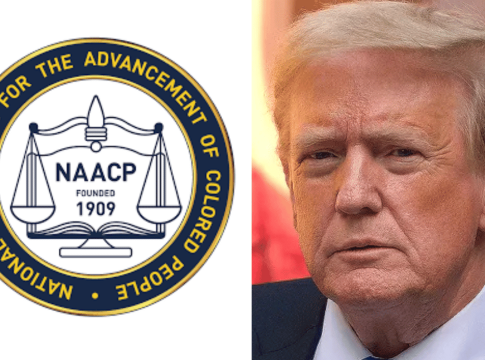A Historic Snub: NAACP Declines Invitation to Trump
In a groundbreaking move that resonates deeply within both civil rights history and the entertainment world, the NAACP has made the unprecedented decision to not invite a sitting president to its upcoming national convention. This marks the first time in 116 years that the venerable civil rights organization has turned away a U.S. president. The spotlight is on Donald Trump, as the NAACP officially announced he won’t be welcome at their gathering in Charlotte, North Carolina.
A Clear Stance on Civil Rights
NAACP President Derrick Johnson articulated the organization’s reasoning during a recent press conference, emphasizing that this isn’t strictly a political stance: "Our mission is to advance civil rights," he stated. "The current president has made clear that his mission is to eliminate civil rights." That’s a pretty powerful statement, and it sets the tone for their upcoming event.
Underlining their commitment to equality, the NAACP has initiated several legal actions against Trump’s administration. For instance, they filed a lawsuit contesting the Department of Education’s attempts to cut funding from schools that maintain diversity and inclusion programs. The organization argues that these policies obstruct crucial efforts to provide Black students with equal educational opportunities.
A Rich Tradition of Inclusivity
The NAACP has a storied history of including presidents from both sides of the aisle at their conventions. Since President Harry Truman was the first to take the stage back in 1947, many leaders have followed suit—even those under fire. For example, George W. Bush addressed the audience in 2006 despite backlash over Hurricane Katrina, and Ronald Reagan spoke in 1981, attempting to mend fences over his racially charged rhetoric.
So what’s changed this year? The organization points out that past criticisms have never led to outright exclusion—a tradition that has now been notably broken.
A Turning Point in Civil Rights
As the NAACP prepares for its convention, it’s clear that this snub isn’t just a simple snub. It’s a significant pivot in the landscape of civil rights activism and the way political leaders engage with these vital issues. The NAACP’s decision sets a precedent and signals to both politicians and the public that civil rights cannot be compromised or trivialized.
In an era where the intersection of politics and culture is more crucial than ever, the NAACP stands firm, showing that their mission is not up for negotiation. In this moment of reflection and action, they are inviting all of us to consider the implications of leadership on civil rights today and in the future.
Stay tuned as we follow how this decision unfolds and impacts future conversations not just within the realm of politics, but also in the broader cultural landscape.

Covers viral stories, pop culture, and breaking celebrity news.
Bio: Jamie has a sharp eye for what’s buzzing online, tracking social media trends and entertainment headlines around the clock.

